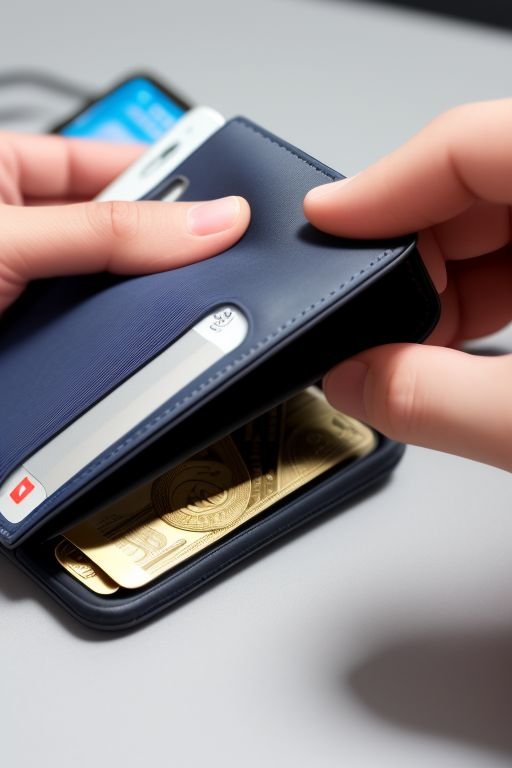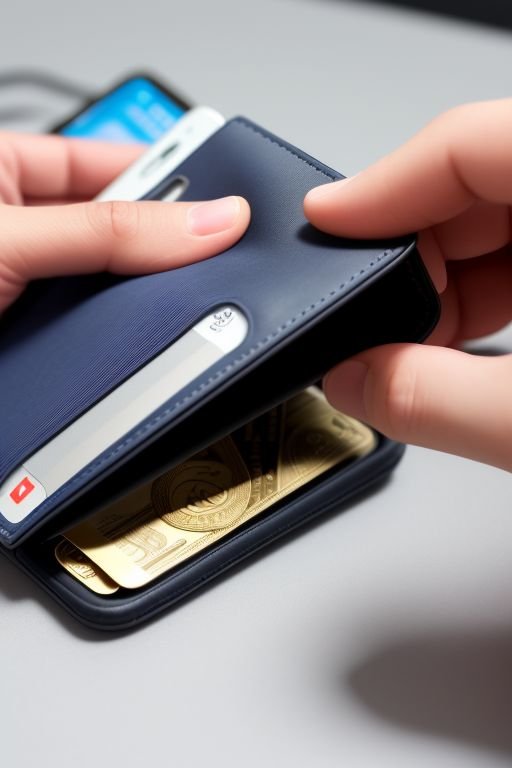
Understanding Digital Currency Wallets
A digital currency wallet serves as a software application designed to facilitate the storage, management, and transaction of cryptocurrencies. In essence, it enables users to send, receive, and track their digital assets securely. Understanding the intricacies of digital currency wallets is crucial for safeguarding cryptocurrencies against potential security breaches, theft, or loss.
Digital currency wallets function by storing the public and private keys necessary to access and manage one’s cryptocurrency holdings. The public key acts like an account number, allowing users to share it with others to receive funds. Conversely, the private key functions akin to a password, granting access to the wallet and the ability to authorize transactions. It is essential for users to keep their private keys confidential, as anyone with access can control the associated funds.
There are primarily two types of digital currency wallets: hot wallets and cold wallets. Hot wallets are connected to the internet, providing convenience and ease of access for regular transactions. Examples include mobile apps, web wallets, and desktop software. While hot wallets are user-friendly and suitable for frequent transactions, they are also more susceptible to online threats and hacking attempts due to their constant internet connectivity.
On the other hand, cold wallets are offline storage options that prioritize security over convenience. This category includes hardware wallets and paper wallets, which store keys physically rather than digitally. By remaining disconnected from the internet, cold wallets minimize the risk of unauthorized access, making them an ideal choice for long-term storage of cryptocurrencies. Users looking to secure significant amounts of digital currency often opt for cold wallets to protect their investments from cyber threats.
The Importance of Securing Your Digital Assets
As the digital economy continues to evolve, securing digital currencies has become a vital consideration for investors and users alike. With the increasing prevalence of cryptocurrencies in financial transactions, the need for robust security measures has never been more critical. This urgency is compounded by a rise in sophisticated cyber threats aimed specifically at cryptocurrency holders, including hacking and phishing attempts that can jeopardize individual assets.
Digital currencies, unlike traditional forms of currency, are susceptible to various forms of cyber attacks. Hackers constantly develop new methods to exploit vulnerabilities in digital wallets and exchange platforms, thus emphasizing the essential nature of safeguarding one’s digital assets. Without proper security protocols, the risk of losing investments to cyber criminals is alarmingly high, as many users have experienced the devastating impact of hacks leading to significant financial losses.
The liquidity and anonymity associated with cryptocurrencies make them attractive targets for malicious actors. Phishing schemes, where fraudsters impersonate legitimate services to deceive users into revealing their private keys and passwords, have become increasingly common. In some cases, even a momentary lapse in security can lead to irreversible consequences, highlighting the importance of employing strong security measures.
It is imperative for individuals and businesses engaging in the cryptocurrency market to prioritize the security of their digital assets. Utilizing secure wallets and adopting multi-factor authentication can serve as effective methods to fortify one’s defenses against cyber threats. Moreover, being informed about the current trends in security risks and continuously updating one’s strategies are essential steps in mitigating potential vulnerabilities.
In conclusion, the significance of securing digital currencies cannot be overstated. As threats to these assets continue to escalate, proactive measures must be taken to protect one’s investments and ensure a more secure digital financial environment.
Types of Digital Currency Wallets
In the rapidly evolving world of digital currencies, selecting the appropriate wallet is crucial for securing your assets. There are several types of digital currency wallets available, each catering to different user needs and preferences. Understanding these types can help you make an informed decision.
First, we have software wallets, which are applications that can be installed on desktop or mobile devices. They offer convenience and ease of use, making them suitable for beginners. These wallets are further categorized into hot wallets, which are connected to the internet, and cold wallets, which are offline. However, hot wallets may be more susceptible to cyber attacks, while cold wallets, while more secure, can be less user-friendly.
Next, hardware wallets present a more secure alternative. These are physical devices designed specifically for storing digital currencies. Hardware wallets store your private keys offline, significantly reducing exposure to online threats. While they offer robust security, they require an initial investment and some technical knowledge for setup and usage. Thus, they are often recommended for those holding larger amounts of cryptocurrency.
Mobile wallets are another popular option, as they allow users to manage their digital currencies directly from their smartphones. These wallets typically offer features like QR code scanning for transactions, making them versatile and user-friendly. However, users should remain cautious of potential vulnerabilities that could arise from malware or phishing attacks on mobile devices.
Finally, paper wallets represent a completely offline storage solution. By printing your public and private keys on paper, you eliminate digital vulnerabilities. Though this method provides optimal security from hacking, it poses risks associated with physical damage or loss. Paper wallets may be best suited for long-term storage of digital currencies or for more experienced users who can ensure their safety.
Each wallet type has its advantages and drawbacks. By evaluating your specific needs, level of experience, and the amount of digital currency you plan to manage, you can choose a wallet that best meets your requirements.
Features of Safe Digital Currency Wallets
Choosing a safe digital currency wallet is crucial for protecting your investments and ensuring that your digital assets remain secure. A wallet should be equipped with several key features designed to enhance its security profile and protect against unauthorized access and data breaches.
One of the most important features is two-factor authentication (2FA). This additional layer of security requires users to provide two distinct forms of identification before gaining access to their wallets. Typically, this involves something the user knows (like a password) and something the user has (like a mobile device). By implementing 2FA, wallets significantly reduce the risk of unauthorized access, making it a must-have feature.
Multi-signature support is another essential characteristic of safe digital currency wallets. Multi-signature wallets require multiple private keys to authorize a transaction, ensuring that no single user can unilaterally control funds. This feature can be particularly beneficial for organizations or individuals who wish to impose additional oversight and disperse risks among multiple parties.
Additionally, users should look for backup and recovery options. A wallet that provides features to securely back up keys and restore access in case of loss is crucial. These options often include phrases or codes that, if kept securely, allow recoverability in the event that access is compromised.
The best digital currency wallets also utilize encryption to protect sensitive data. End-to-end encryption ensures that the information transmitted and stored is inaccessible to unauthorized third parties. This protective measure is fundamental in maintaining the integrity and confidentiality of user data.
Finally, a user-friendly interface can significantly enhance the overall experience while interacting with a digital currency wallet. An intuitive design helps both novice and experienced users navigate the wallet efficiently while ensuring that security features are easy to access and utilize. Prioritizing these features when selecting a wallet will help users safeguard their digital currencies effectively.
Top Recommended Safe Digital Currency Wallets
The increasing demand for digital currencies has led to the emergence of various wallets designed to store cryptocurrencies securely. Selecting a safe digital currency wallet is paramount to protect your investments. Here are some of the top recommended wallets that stand out based on security features, user experience, supported currencies, and community reputation.
Ledger Nano X is a popular hardware wallet that offers robust security by keeping private keys offline. This wallet supports over 1,800 cryptocurrencies, making it versatile for users with diverse portfolios. Its Bluetooth capability enhances usability, allowing for easy transactions via mobile devices without compromising security.
Trezor Model T is another highly regarded hardware wallet, featuring a touchscreen for user-friendly navigation. It supports over 1,600 coins and tokens, providing flexibility as the cryptocurrency landscape evolves. The Model T is known for its strong security protocols, including two-factor authentication (2FA) and a passphrase option, ensuring user assets are well-protected.
Exodus Wallet is a well-designed software wallet that prioritizes user experience and aesthetics. With support for over 150 digital currencies, Exodus allows for seamless exchange of cryptocurrencies within the wallet. Its built-in 2FA and backup options contribute to its reputation as a safe choice, particularly for those new to cryptocurrency.
Coinbase Wallet is an extension of the Coinbase platform, renowned for its strong security measures. This wallet provides users with complete control over their private keys, unlike many custodial wallets. It supports a broad range of cryptocurrencies and offers features like biometric login and multi-signature accounts for added security.
Finally, Atomic Wallet rounds out our list as a non-custodial wallet that supports over 500 coins and tokens. Atomic Wallet allows users to manage their private keys independently and provides a user-friendly interface. Its security features, such as a backup phrase for recovery and no centralized server, have garnered positive feedback from the cryptocurrency community.
These wallets are considered safe due to their strong security measures, user-centric design, and community trust. Evaluating these factors will aid in making an informed choice when securing your digital currencies.
Best Practices for Wallet Security
Ensuring the security of digital currency wallets is of paramount importance for anyone engaged in cryptocurrency transactions. By implementing certain best practices, users can significantly enhance the security of their wallets, thus safeguarding their valuable assets. One foundational practice is to keep wallet software updated regularly. Developers frequently release updates to address vulnerabilities and improve security features. By enabling automatic updates or manually checking for new versions, users can protect their wallets against known threats.
Using strong, unique passwords is another critical practice. A robust password should incorporate a mix of upper and lower case letters, numbers, and special characters, ensuring it is not easily guessable. Additionally, employing different passwords for different wallets can prevent a single breach from compromising multiple accounts. For even greater security, consider the use of a password manager to generate and store complex passwords safely.
Understanding wallet recovery processes is essential for all digital currency wallet users. In the event of losing access to a wallet, having a clear recovery plan can save assets from being permanently lost. This includes backing up recovery phrases or keys securely and ensuring that these backups are stored in a safe, off-site location. Users should familiarize themselves with specific recovery options available for their wallet type to minimize risks.
Lastly, exercising caution when using public Wi-Fi networks is vital for maintaining wallet security. Public connections are often unsecured, making them susceptible to cyber-attacks. Users should avoid accessing their wallets or executing transactions on public Wi-Fi and should consider using a Virtual Private Network (VPN) to create a secure connection. By integrating these best practices into their cryptocurrency management strategy, users can proactively enhance the security of their digital currency wallets.
Conclusion: The Future of Digital Currency Security
As the digital currency landscape continues to evolve, the importance of securing these assets cannot be overstated. With increasing numbers of individuals and institutions entering the cryptocurrency market, the potential risks associated with digital currencies are magnified. The earlier sections of this blog post outlined various types of wallets, emphasizing the significance of selecting one that aligns with your specific security needs. From hardware wallets offering offline security to software wallets providing convenience, each option carries distinct advantages and drawbacks.
Emerging trends in technology also promise to enhance digital currency security. Innovations such as multi-signature wallets, which require multiple private keys for transactions, and biometric authentication methods are becoming increasingly popular. These features add layers of security, making it more challenging for unauthorized users to access funds. Moreover, the rise of decentralized finance (DeFi) platforms is leading to new security protocols that can mitigate risks associated with hacks and fraud.
Staying informed about these advancements is crucial for anyone involved in digital currencies. As threats evolve, so too must the strategies for protecting digital assets. Regularly reviewing wallet options, understanding the latest security technologies, and keeping abreast of market trends will empower investors to navigate the complexities of cryptocurrency security more effectively.
While complete removal of risk is unattainable, adopting a proactive approach towards securing digital currencies can significantly reduce exposure to potential threats. Ultimately, the future of digital currency security lies in informed decision-making and the willingness to adapt to an ever-changing environment. By prioritizing security, investors can confidently engage with digital currencies, safeguarding their financial interests in a dynamic landscape.



